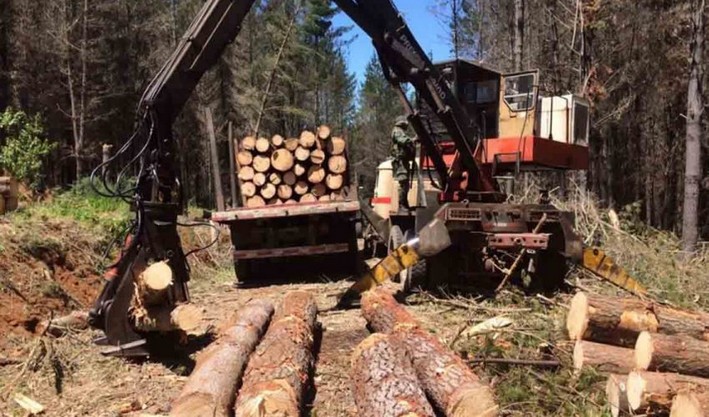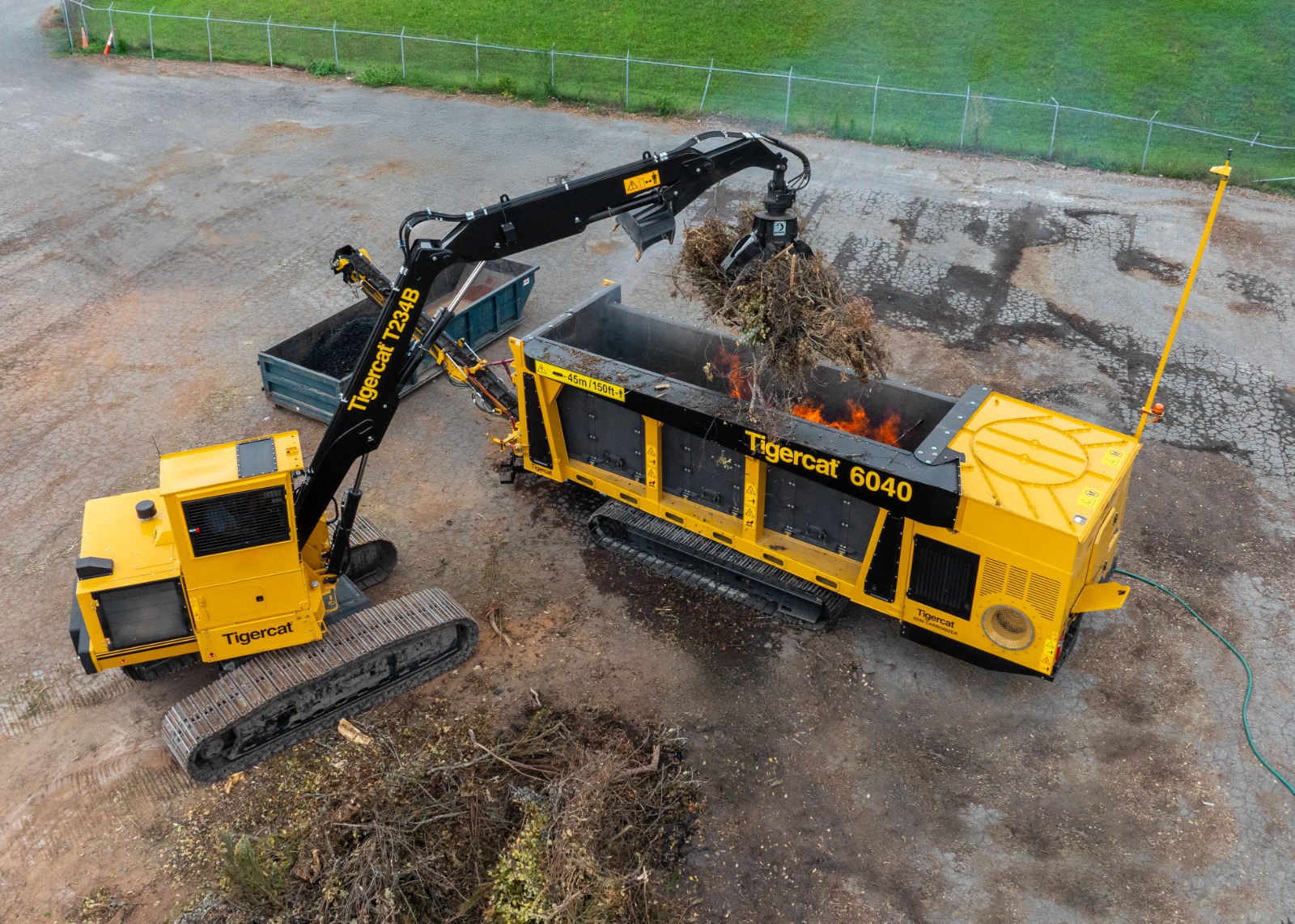The forestry sector in Biobío, one of the most important productive pillars of the region, faces a complex economic outlook despite the notable decrease in timber theft in the area. Although the implementation of the Timber Theft Law and improved coordination among public institutions have nearly eradicated this crime, the regional industry remains in crisis due to the sustained closure of sawmills and the lack of raw material supply.
According to data from the Forestry Institute (Infor), nearly 200 sawmills have shut down nationwide over the past five years, a figure equivalent to more than 25% of the total. The Biobío region, which concentrates a large portion of the country's forestry plants and SMEs, is the most affected. Between 2020 and 2023 alone, about 20 facilities closed permanently, leaving hundreds of people unemployed.
A Drastic Reduction in Crime
René Muñoz, manager of the Association of Forestry Contractors (Acoforag), asserts that timber theft no longer represents the threat it was just a few years ago.
"Our perception is that it has decreased steadily and significantly; it is no longer a crime that stands out within the sector's security issues. Compared to 2022, which was the peak, when losses of over 100 million dollars annually were reported, today we are seeing reductions of up to 90 or 95%. It is no longer a relevant crime; it is marginal," he states.
Muñoz attributes this change to the effective enforcement of the Timber Theft Law, enacted in 2022, which "has had a deterrent effect on the criminal gangs operating in the area." He explains that coordination between the Internal Revenue Service, the National Forestry Corporation (Conaf), the General Treasury of the Republic, and other public institutions enabled much stricter monitoring of the timber production, transport, and marketing chain.
"I wouldn't say the sector is more watched, but it is more closely followed. The authorities coordinated around information on freight, exploitation, and forest management. All of that helped close off spaces for crime," adds the leader.
However, Muñoz warns that this improvement in security has not meant a recovery for the sector. "The forestry sector is undergoing a deep crisis related to security, markets, and internal adjustments within companies. Activity has decreased, and that has directly impacted employment, its quality, and regional productive development," he emphasizes.
A Domino Effect After the Fires
The current crisis has deeper roots than crime. For sector representatives, the shortage of timber is the structural factor keeping forestry SMEs in check. The supply deficit dates back to the major fires of 2017, which, according to Muñoz, "created a timber deficit that was going to last at least 15 years." This was compounded by the 2023 fires, which again devastated thousands of hectares of productive plantations.
"The damage was enormous and mainly affected small sawmills, which source from various owners. Many small landowners lost their assets in the fires, and that creates a domino effect hitting contractors, transporters, and workers," he warns.
Muñoz also maintains that the maintenance of the State of Exception in some areas of Biobío has contributed to improving security, although he believes its importance now lies more in fire prevention than in combating timber theft.
"Intentional fires are responsible for over 60% of current incidents. The State must strengthen prevention and improve criminal prosecution because only 3% of those responsible for intentional fires end up convicted," he underscores.
The Contribution of Self-Regulation
From the industry, it is also highlighted that the decrease in crimes is due to progressive self-regulation by the forestry actors themselves. Alejandro Casagrande, president of the Chilean Wood Corporation (Corma) Biobío–Ñuble, explains that starting in 2021, the sector implemented internal traceability systems to ensure the legal origin of timber.
"In those years, you couldn't enter many properties; timber was stolen, and there was a serious security problem. A system was then established where buyers verified that the timber came from legal properties, using software that allowed tracing truck by truck and verifying its destination. That made a difference," he states.
With the enactment of the Timber Theft Law, adds Casagrande, the prosecution and police gained greater powers to pursue and sanction organizations dedicated to this crime.
"High-profile cases emerged where actual criminal networks were uncovered. Some involved implicated sawmills, but as in all sectors, where there is theft, there is someone buying. Whether they did it knowingly or were deceived, that must be determined by the justice system," he clarifies.
Shortage and Closure of Sawmills
The union leader shares the concern over the massive closure of sawmills but specifies that the main problem is not oversight but the lack of available timber.
"Productive forests and plantations in Chile have been decreasing. Between the 2017 and 2023 fires, between 500 and 600 thousand hectares were burned. This creates a deficit that begins to be felt three or four years later when the burned timber can no longer be used," he explains.
Casagrande points out that this situation affects both large companies and SMEs, although the latter are the most vulnerable. "Small sawmills depend on purchasing forests from third parties, and if those forests disappear, they have no way to continue. Many end up bankrupt or temporarily closing," he maintains.
The most visible consequence is the drop in forestry employment. According to union estimates, accumulated layoffs in the sector over recent years exceed several thousand direct and indirect jobs, especially in municipalities like Nacimiento, Mulchén, Curanilahue, and Yungay, where the sector represents a substantial part of economic activity.
Source:Diario Concepción







Comments (0)
No comments yet. Be the first to comment!
Leave a comment